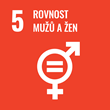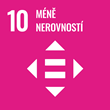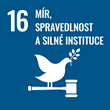Informace o projektu
Economic Decision-Making: Hormonal Determinants and Ritualized Behavior
- Kód projektu
- MUNI/G/0985/2017
- Období řešení
- 3/2018 - 6/2021
- Investor / Programový rámec / typ projektu
-
Masarykova univerzita
- Grantová agentura MU
- INTERDISCIPLINARY - Mezioborové výzkumné projekty
- Fakulta / Pracoviště MU
-
Ekonomicko-správní fakulta
- Tommaso Reggiani, PhD
- Ing. Diya Elizabeth Abraham, Ph.D.
- Ing. Barbora Baisa
- doc. PhDr. Lubomír Cingl, Ph.D.
- Ing. Miloš Fišar, Ph.D.
- Další fakulta/pracoviště MU
- Filozofická fakulta
- Další fakulta/pracoviště MU
- Středoevropský technologický institut
Ongoing interdisciplinary research in economics is exploring how hormones influence individual decision-making such as fairness in monetary allocations, cooperation, choices under risk and uncertainty, trust in financial relationships or cheating. For example, higher levels of testosterone have been correlated to more competitive and risky economic strategies while cortisol to more selfish decisions.
Research is based on fully controlled experimental exercises. This canonical experimental setting allows manipulating for a short period one hormone at the time (via stimulus or administration) in order to isolate the correspondent short-term decisional response in relation to different economics dilemmas. In the real world, hormonal variations can assume more complex configurations: (i) frequently they involve a range of multiple hormones at the same time, (ii) hormonal variations may last for longer periods of time.
To expand the boundaries of the research about the impact of hormones on economic decision-making, we plan to focus on more complex hormonal variations exploiting natural “shocks” in hormonal levels. These intense variations are related to specific biological events in women’s life such as the menstrual cycle, pregnancy, breastfeeding, depression, menopause. These “shock” episodes - contrasted to adequate control groups - will offer us the opportunity to analyze the effect of hormones on economics decision-making in a much more salient and less reductive context.
In order to better understand the effect of hormones on economic decisions, we will make a step further analyzing ritualized behavior that can be observed during the decision-making phase before the final economic choice is made. Ritualized behavior is intuitively recognizable by its stereotypy: rigidity, repetition, and apparent lack of rational motivation. It is found in a variety of living conditions and customs. Ritualized behavior comes directly from the psychological Precaution System deputed to the detection of possible undesired outcomes.
A closer look at ritualized behavior can bring new information about the individual perceptions generated by the different typologies of economics dilemmas. It will reveal supplementary elements linked to the decision process that cannot be captured merely focusing on the analysis of the economic outcomes.
Cíle udržitelného rozvoje
Masarykova univerzita se hlásí k cílům udržitelného rozvoje OSN, jejichž záměrem je do roku 2030 zlepšit podmínky a kvalitu života na naší planetě.
Publikace
Počet publikací: 17
2023
-
Ovulatory shift, hormonal changes, and no effects on incentivized decision-making
JOURNAL OF ECONOMIC PSYCHOLOGY, rok: 2023, ročník: 98, vydání: October, DOI
2022
-
Broadband Internet and social capital
JOURNAL OF PUBLIC ECONOMICS, rok: 2022, ročník: 206, vydání: February, DOI
-
Effects of predictable behavioral patterns on anxiety dynamics
Scientific Reports, rok: 2022, ročník: 12, vydání: 1, DOI
-
Rituals as signals of mate quality
Current Research in Ecological and Social Psychology, rok: 2022, ročník: 3, vydání: 100048, DOI
-
The political cost of sanctions: evidence from COVID-19
HEALTH POLICY, rok: 2022, ročník: 126, vydání: 9, DOI
2021
-
Effects of extreme ritual on physiological and psychological health
Rok: 2021, druh: Další prezentace na konferencích
-
Lab-Sophistication: Does Repeated Participation in Laboratory Experiments Affect Pro-Social Behaviour?
GAMES, rok: 2021, ročník: 12, vydání: 1, DOI
2019
-
Does culture change understanding of kneeling display in religious ritual?
Rok: 2019, druh: Další prezentace na konferencích
-
Effects of Kavadi ritual on mate attractiveness
Rok: 2019, druh: Další prezentace na konferencích
-
Effects of Kavadi ritual on status management
Rok: 2019, druh: Další prezentace na konferencích


